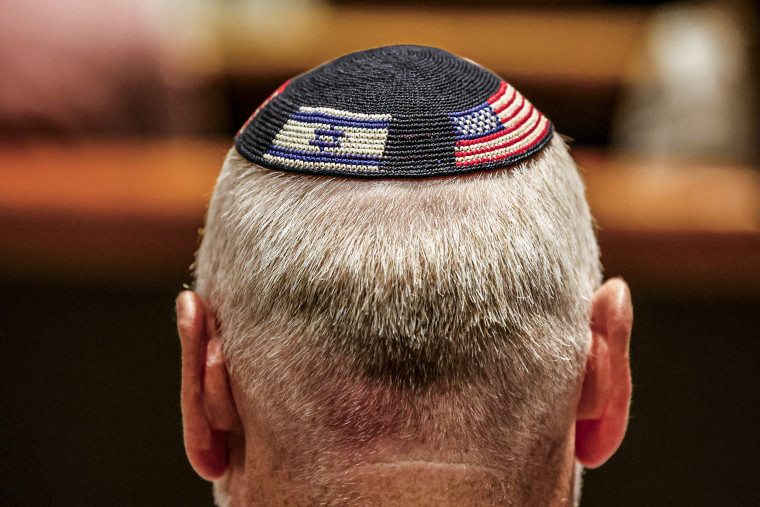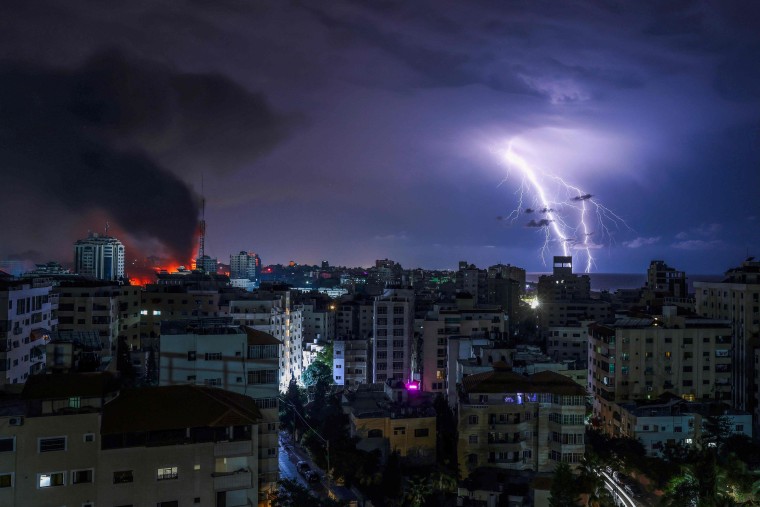The raging war between Israel and the militant group Hamas is reigniting debate on America’s college campuses, where emotions are running high and officials are feeling the pressure not to stay silent.
And for some students, speaking out has proven to be problematic, underscoring the real-world consequences for young people who choose to exercise their free speech rights or showcase their identities amid such a divisive dispute.
Follow live updates on the Israel-Hamas conflict
“Never in my life have I seen the tension like this,” said Jacob Miller, a junior mathematics major at Harvard University who is president of the school’s chapter of the Jewish student organization Hillel.
Harvard’s leadership has been accused of having failed to urgently respond after a statement from Palestinian solidarity groups blamed Israel for the escalating violence in the Gaza Strip, remarks that drew condemnation from Jewish groups and supporters.
Miller, 21, described some Hillel members’ crying in hallways and struggling to focus on their schoolwork.
Elsewhere, fallout has been swift. At New York University, the student president of the school’s student bar association lost a job offer after having made comments in an online newsletter that read in part, "I will not condemn Palestinian resistance."
And at California State University, Long Beach, a “day of resistance” in support of the Palestinian cause was dog-piled by critics on social media, leading a student association to make its Instagram account private for the “safety for our students.”
As in years past when the region has been roiled in conflict, the complex discussion — steeped in historical nuance and an intense fervor — has caught college students’ attention, with many expressing horror at the hundreds of deaths among Israelis and Palestinians since the weekend. In turn, some students in the U.S. worry about backlash here.

“I wear a kippa as a Jewish garment, and today was the first time that I ever questioned whether or not I should go out wearing one just to go to class,” said Ari Kolb, a senior at Rutgers University in New Brunswick, New Jersey, who is president of the school’s Hillel.
American students such as Kolb say the images of the bloodshed overseas have generated anxiety where they live, as well, with some communities stepping up security at synagogues and mosques as a precaution against potential violence.
At the University of Vermont, the school’s Hillel group said campus police would increase patrols and station a car outside its offices this week.
Rama Darayyad, a junior at Northwestern University in Evanston, Illinois, has sought solace among fellow Palestinian American students who may feel unfairly maligned by “baseless accusations of antisemitism” when they show support for the Palestinian people, she said.
“The violence and rhetoric does not escape Palestinians no matter where we are,” Darayyad, 20, said, adding: “I don’t go a second without thinking and worrying for the people of Gaza. My heart hurts for Gaza, and I never thought I had room to hurt more for Palestine than I already do.”
While nonconformist and opposing viewpoints are typically tolerated within the bounds of free speech on many college campuses, students who weigh in on the war are finding their positions are being tested.
A member of the NYU Student Bar Association had an employment offer rescinded Tuesday after having said in an online publication that “Israel bears full responsibility for this tremendous loss of life” and “I will not condemn Palestinian resistance.”
In a statement on social media, the Chicago-based law firm Winston & Strawn LLP said the student’s comment conflicts with its values.
“Winston stands in solidarity with Israel’s right to exist in peace and condemns Hamas and the violence and destruction it has ignited in the strongest terms possible,” it said.
Sa’ed Atshan, an associate professor of peace and conflict studies and anthropology at Swarthmore College in Pennsylvania, said speaking out in support of Palestinian human rights has always been a fraught topic on and off school campuses.
In some cases, Atshan said, there is a calculated effort to silence voices who speak in solidarity with Palestinians.
He pointed to Canary Mission, an anonymous online site that seeks to identify “people and groups that promote hatred of the USA, Israel and Jews.” The site lists students and professors it considers “on the far-right, far-left” or “anti-Israel activists.”

Atshan, who is Palestinian American, said it is important to recognize antisemitism, adding that hatred against Jewish people can also spark reprisals against those who are vocal about supporting the Palestinian cause. However, criticism of the Israeli state must not be conflated with antisemitism, he said.
“It’s absurd to just, in a knee-jerk fashion, malign people as bigots and antisemites just because they have thoughtful critiques of one of the most powerful spaces in the world that’s committing some of the most egregious human rights violations in the world,” Atshan said.
For now, U.S. higher education institutions are balancing how best to respond to the immense interest without alienating members of their student populations.
Northwestern junior Sama Ben Amer, a journalism student and former board member of the school’s Students for Justice in Palestine organization, said there is a clamor for university officials to acknowledge the war as student groups hold vigils in honor of those killed.
The school put out statements in the wake of the death of George Floyd and the war in Ukraine.
“The default for Northwestern is to ignore any kind of demonstrations by students at all costs,” Ben Amer said. “If we don’t acknowledge it, it’s not a problem.”
Northwestern did not immediately respond to a request for comment.
Larry Summers, a former president of Harvard and U.S. treasury secretary, took aim at Harvard’s current leadership for not having initially condemned the statement by Palestinian solidarity groups, writing on social media that Harvard appears “at best neutral towards acts of terror against the Jewish state of Israel.”
Harvard President Claudine Gay distanced the school in a statement Tuesday, saying that “while our students have the right to speak for themselves, no student group — not even 30 student groups — speaks for Harvard University or its leadership.”
Summers told NBC News on Wednesday that he hopes the university learned a lesson to “speak quickly — not on complicated and subtle issues that require thought, but on matters that are very clear, as this one was.”
Others are offering support to students who may experience adverse reactions.
The Associated Press fired Emily Wilder, 25, in 2021 after she violated the “AP’s social media policy during her time at AP,” a spokesperson for the AP told The Washington Post at the time. Although Wilder was not told what tweets violated the AP’s policy, she believes she was fired because of posts she made in support of Palestinians.
Wilder’s firing was also spurred on by a campaign shared by far-right personalities on social media. On Wednesday, she said she felt like she was watching her own story play out again — this time among college students who were being punished for voicing their support of Palestinians, too.
“I’m heartbroken and I’m not surprised,” she said.
Wilder said that it is rare that institutions know how to handle things like bad faith social media campaigns and that they often do not stand by those who are subjected to them. She said support often comes only from those who have experienced retribution themselves.
“You know, once you’re in this club, it’s a really weird club, but we have your back,” Wilder said.

